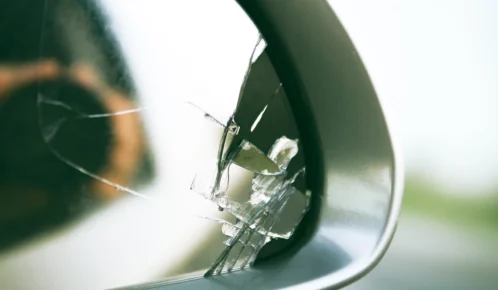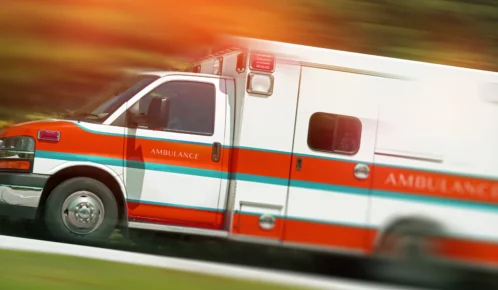In this guide, you will learn how to prepare for a workers’ comp hearing.
Table of Contents

Preparing in advance for a workers’ comp hearing can help ensure injured workers in Chicago come away with a fair settlement. A work injury lawyer often helps clients prepare by reviewing information in reports and records and how the injury occurred, creating a medical timeline, gathering and interviewing witnesses, and going over sample questions.
Illinois Workers’ Compensation Hearing
In Illinois, employers are required to carry workers’ compensation insurance that covers work-related injuries to employees. Although all Illinois workers are entitled to receive workers’ compensation benefits, many claims are denied, delayed, or insurance companies offer unfair settlements. Claim disputes commonly lead to appeals, settlement conferences, and workers’ compensation hearings.
Work injury claims that involve extensive medical treatment or permanent disability are more likely to be denied than claims involving smaller payouts. High-value claims often stem from:
- Slip and fall accidents
- Malfunctioning machinery and equipment
- Repetitive stress and trauma
- Explosions and fires
- Occupational diseases
- Mental health problems
Employees who are injured on the job generally rely on workers’ compensation benefits to help with medical expenses, lost wages, physical therapy, and vocational rehabilitation. If the insurance company denies the claim, delays benefits, or offers an unfair settlement, an Illinois work injury lawyer can file an appeal and provide legal guidance during a settlement conference or workers’ comp hearing to ensure fair benefit payments are obtained.
Workers’ Comp Settlement Conference
When work injury claims are denied, the claimant and his or her workers’ compensation lawyer will need to file an Application for Adjustment of Claim with the Illinois Workers’ Compensation Commission and notify the employer of the filing.
Once the application is filed, an arbitrator will be assigned to the case. Generally, negotiations between the claimant and the insurance company continue, and the case will be re-examined every 60 days in what is known as a status call. Each time the case is re-examined, the claimant may request a trial or remain in negotiations.
Without an injury lawyer to navigate the process, present important documents, question witnesses, and talk to the insurance company, an employee may face hurdles that result in a lower settlement.
Most workers’ compensation cases end in a settlement between the injured employee and the insurance company. If an agreement is reached, a formal agreement document will be drawn up outlining the terms of the settlement including the settlement amount and how payments will be made. In Illinois workers’ compensation claim disputes, informal settlement conferences are often held before Commission arbitrators to help parties negotiate settlements. All settlements must be approved by the IWCC to be valid.
If an agreement cannot be reached, the next step is usually a workers’ compensation hearing.
Check our worker’s compensation settlement guide to learn more.
Workers’ Compensation Hearing
Workers’ compensation hearings are typically scheduled when there are disputes about the validity of work-related injuries and the degree of a worker’s work-related disabilities. A workers’ comp hearing is held before the arbitrator. The process is more formal than settlement conferences and adequate preparation is essential for a good outcome.
How to Prepare for Workers’ Comp Hearing
Summarize How the Injury Occurred
Reviewing all accident reports and medical records that validate the workplace accident and injury in workers’ compensation cases. The employee or his/her injury lawyer must ensure that the description of the events matches the information in reports and records, or be prepared to explain any errors.
Create a Medical Timeline
It’s important to create a timeline for medical treatments with documented evidence of doctor’s visits, medical treatments, prescribed medications, diagnoses, and outcomes. Medical evidence should also include any work-related restrictions placed on the injured employee and the length of those restrictions. If there is a dispute about work-related restrictions and/or disabilities, the injured employee should be prepared to explain his/her current injury symptoms and physical limitations.
How Long Does a Workers’ Compensation Hearing Last?
Depending on the complexity of the workers’ compensation case, hearings usually last a few hours.
What Happens in a Workers’ Comp Hearing?
During the hearing, the claimant’s work injury lawyer and the insurance company’s lawyer present each side of the dispute. Work-related accident reports, medical documents and evidence, credible witnesses, and legal arguments are presented. The injured worker may be questioned by either side’s lawyers during the hearing.
All testimony will be under oath, so questions must be answered accurately and honestly, avoiding answers that are speculated. For example, if a lawyer asks what happened that caused machinery or equipment to malfunction and cause injury, the claimant should not speculate or guess what went wrong. If the claimant does not know an answer, it is appropriate to say so in a workers’ comp hearing.
What Happens After a Workers’ Comp Hearing?
After hearing the facts, the arbitrator will send the decision to the claimant within 60 days. If the arbitrator denies the claim, the work injury lawyer can help him/her file a Petition for Review to be heard by a panel of three commissioners. If the commission issues an adverse decision, the claimant can appeal to the Illinois Circuit Court and up the ladder to the state Supreme Court if necessary.



